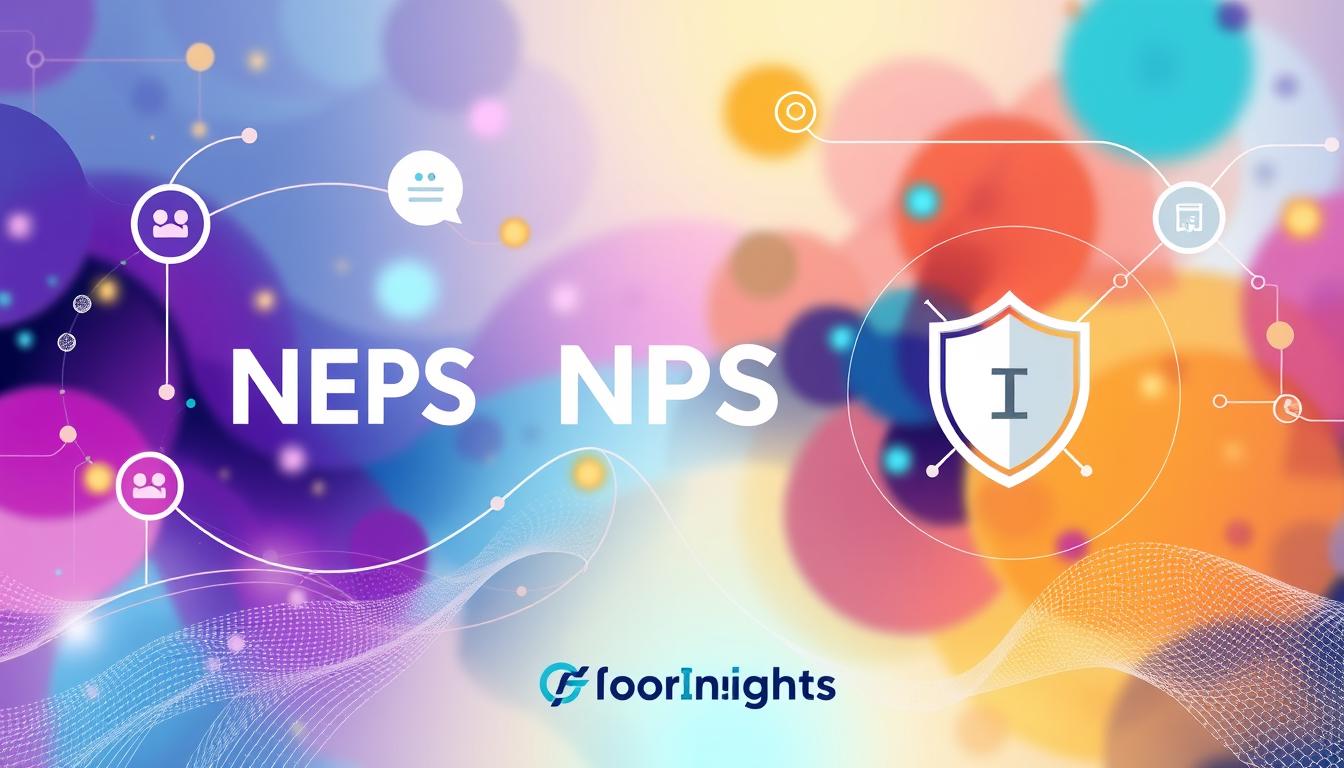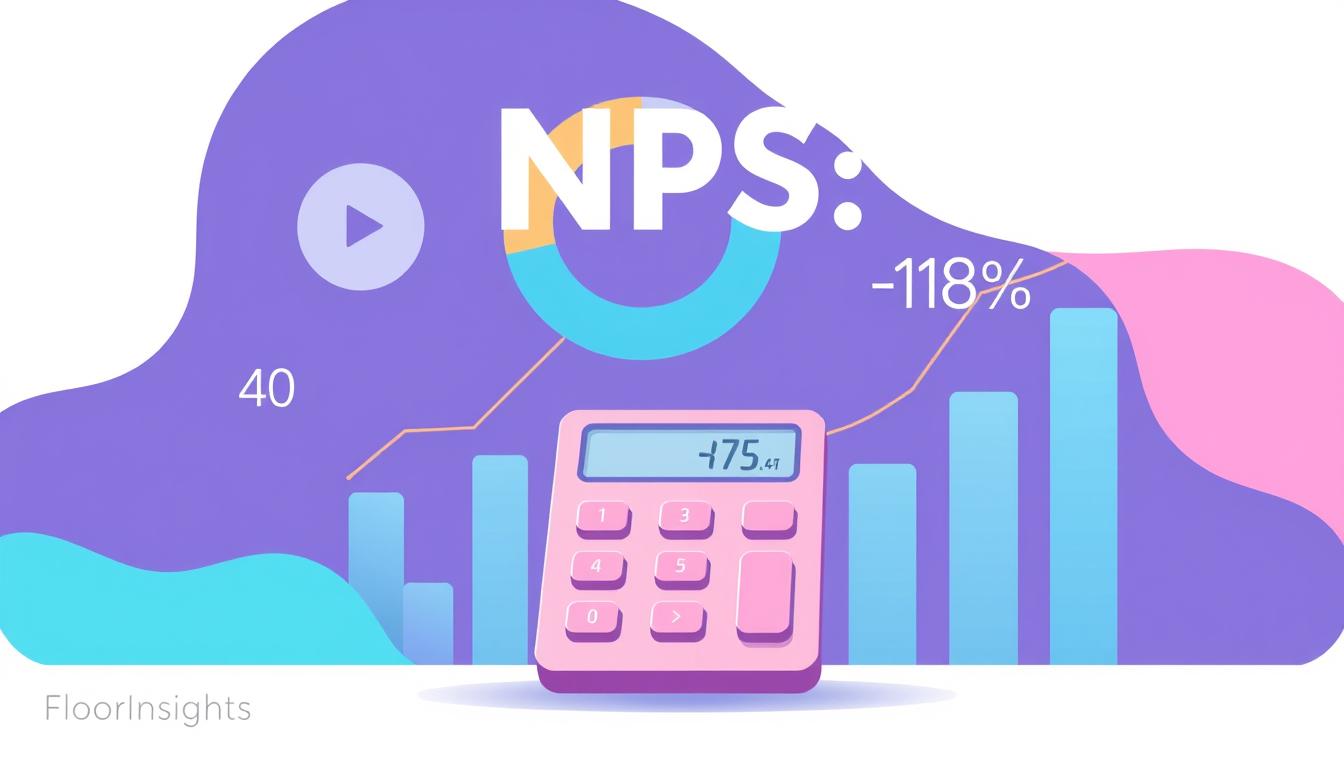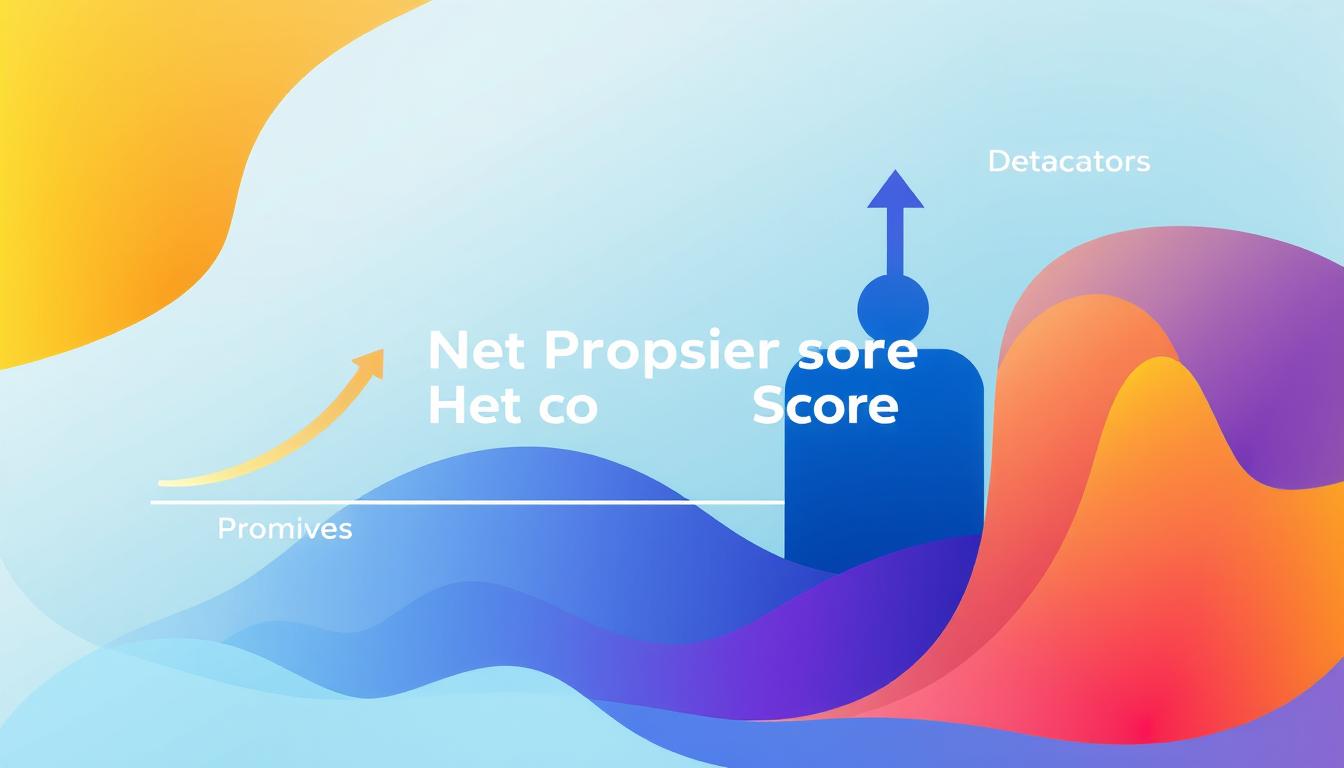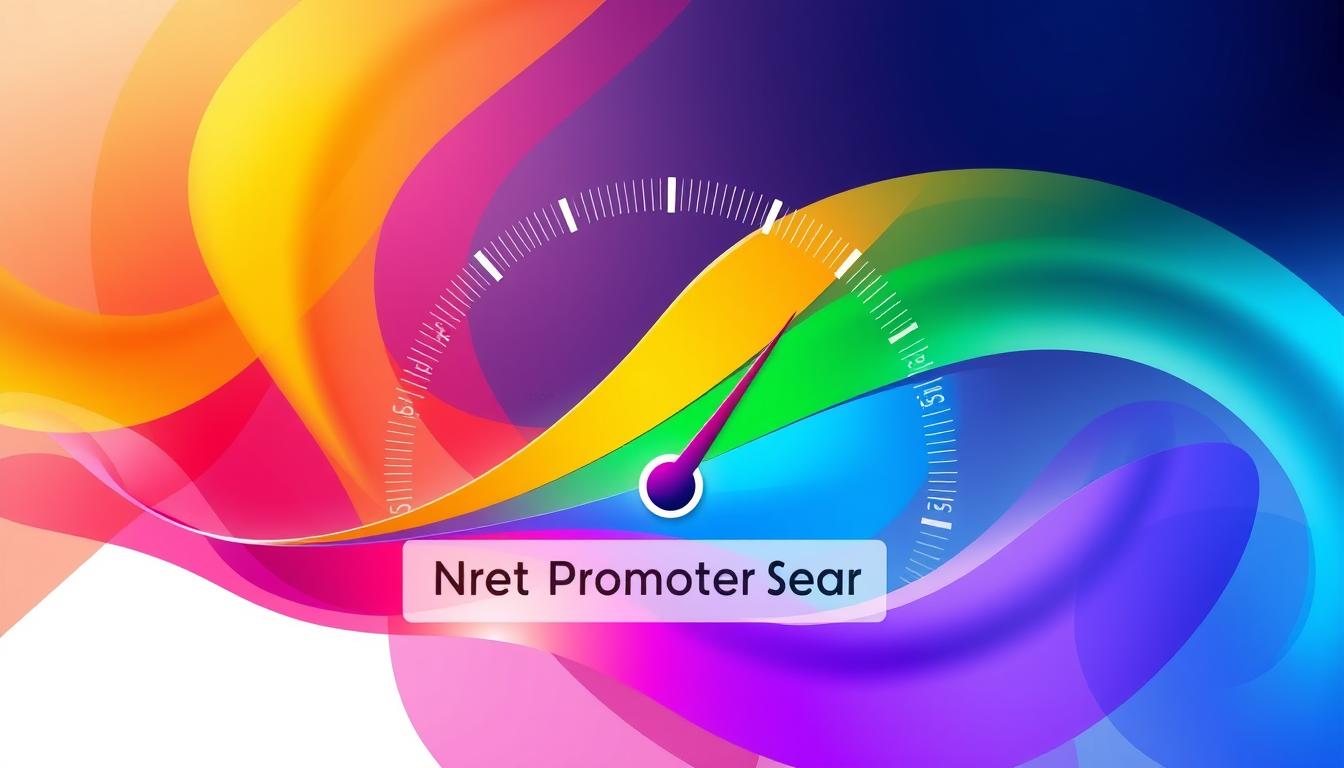In the dynamic landscape of customer interactions, the Net Promoter Score (NPS) emerges as a pivotal metric for measuring customer feedback and loyalty. We understand that the importance of NPS lies not only in quantifying customer satisfaction but also in the ethical considerations inherent in gathering this invaluable feedback. As we explore the NPS ethics with a special focus on data privacy, particularly in the Indian market, we recognize the need for businesses to prioritize authentic relationships with their customers. The implications of NPS extend beyond numbers; they guide us toward developing strategies that enhance customer experiences while preserving trust and confidentiality.
Key Takeaways
- The Net Promoter Score is essential for measuring customer loyalty.
- Honest customer feedback directly impacts business success.
- NPS ethics highlight the need for protecting customer data.
- Data privacy is crucial during the feedback collection process.
- Building authentic customer relationships is a core benefit of NPS.
Understanding the Importance of Honest Customer Feedback
In today’s competitive marketplace, the significance of honest customer feedback cannot be overstated. Companies that embrace transparency and actively seek input from their customers can leverage this information to make informed business decisions. By understanding what customers truly think about their products and services, businesses empower themselves to enhance their offerings, leading to a substantial impact on customer satisfaction.
Why Customer Feedback Matters for Businesses
Customer feedback plays a vital role in shaping business strategies. By collecting and analyzing honest feedback, we can pinpoint areas that require improvement and capitalize on our strengths. Key benefits of customer feedback include:
- Identifying customer needs and preferences
- Formulating targeted marketing strategies
- Enhancing product development processes
Incorporating this type of feedback allows us to adapt quickly, ensuring we meet the evolving demands of our customer base. As we focus on the importance of customer feedback, we lay the groundwork for healthier customer relationships and increased loyalty over time.
The Link Between Honest Feedback and Customer Loyalty
Establishing trust is crucial for fostering customer loyalty. When businesses prioritize honest feedback, customers feel valued and heard. This process strengthens the bond between customers and the brand, resulting in increased retention rates. Research has shown a direct correlation between a customer’s willingness to provide honest feedback and their likelihood of becoming a loyal advocate for the brand.
To improve customer satisfaction, we must recognize the integral role that honest feedback plays in our growth. By building robust feedback mechanisms, we can ensure a cycle of continuous improvement that directly benefits our customers and solidifies their loyalty.
What is Net Promoter Score?
Understanding net promoter score allows businesses to gauge customer loyalty and satisfaction effectively. By analyzing responses to a simple question, we can categorize customers into three groups: promoters, passives, and detractors. Each of these groups provides valuable insights into customer sentiment and business performance.
Defining the Net Promoter Score
The Net Promoter Score definition originates from the question, “How likely are you to recommend our product/service to a friend or colleague?” Customers respond on a scale from 0 to 10. Based on their responses, we classify them:
- Promoters (9-10): Loyal customers who will keep buying and referring others.
- Passives (7-8): Satisfied but unenthusiastic customers who are vulnerable to competitive offerings.
- Detractors (0-6): Unhappy customers who can damage the brand through negative word-of-mouth.
The Calculation of NPS
Effective nps score calculation involves a straightforward formula. We subtract the percentage of detractors from the percentage of promoters:
| Customer Category | Example % |
|---|---|
| Promoters | 60% |
| Detractors | 20% |
| NPS Score | 40 |
A positive NPS indicates that a larger share of customers are promoters, reflecting higher loyalty. Through understanding net promoter score, we gain an avenue for improvement in our products and services, directly influencing our overall business strategy.
The Role of NPS in Gathering Customer Insights
NPS plays a significant role in gathering customer insights, serving as a powerful tool for understanding customer experiences and expectations. By leveraging NPS analytics, we can extract meaningful data that informs our decision-making processes. The feedback obtained from customer satisfaction surveys not only reflects how customers perceive our services but also highlights areas for improvement.
How NPS Provides Valuable Business Intelligence
The quantifiable data from NPS allows us to measure customer sentiments effectively. It enables the identification of trends in customer behavior, making it easier to gather actionable customer insights. Organizations can utilize this information to tailor their services, aligning offerings with customer preferences. By focusing on these insights, we can enhance our service delivery and foster an environment of continuous improvement.
NPS as a Tool for Improving CSAT and Customer Satisfaction
Improving CSAT is crucial for enhancing overall customer loyalty. By correlating NPS scores with customer satisfaction survey results, we can pinpoint specific aspects of our service that require adjustments. This connection reveals how changes based on customer feedback can lead to higher CSAT scores. Ultimately, NPS serves as a bridge, connecting customer experiences with tangible service enhancements that promote greater satisfaction and retention.
| Customer Feedback Type | Impact on NPS | Potential Actions |
|---|---|---|
| Positive Feedback | Increases NPS | Maintain existing practices and enhance further |
| Neutral Feedback | Minimal impact on NPS | Investigate reasons and address concerns |
| Negative Feedback | Decreases NPS | Implement changes and track improvements |
NPS Ethics and the Importance of Data Privacy
As organizations seek to gather valuable customer insights through Net Promoter Score (NPS) surveys, the commitment to NPS ethics becomes crucial. It is our responsibility to ensure that customer data protection practices are upheld throughout the feedback process. By creating a transparent and safe environment for participants, we foster trust and encourage more genuine responses.
Protecting Customer Data in Feedback Processes
In the landscape of NPS methodologies, protecting customer data remains a priority. Organizations must implement robust measures for data privacy to safeguard personal information collected during surveys. This involves adopting secure technologies and protocols, ensuring data is stored and managed responsibly. Regular audits can also help maintain compliance with legal standards, thereby reinforcing our commitment to customer data protection.
Ethical Considerations When Collecting Customer Insights
We recognize that collecting ethical customer insights requires mindfulness about how data is obtained and used. Establishing clear consent processes allows customers to feel confident in participating. Our communication should clarify how their feedback contributes to improving products and services. Transparency about data usage promotes ethical practices and cultivates long-term relationships with customers.
| Ethical Considerations | Best Practices |
|---|---|
| Informed Consent | Clearly explain data usage and gain explicit permission before collecting feedback. |
| Data Security | Implement advanced encryption technologies to protect sensitive information. |
| Minimize Data Collection | Only gather information necessary for analysis to reduce risks. |
| Regular Audits | Conduct regular checks to assess compliance with data protection laws and ethical standards. |
Through adhering to these ethical guidelines and prioritizing customer data protection, we secure the integrity of our feedback processes and enhance our reputation as trusted organizations in the market.
Using AI for Customer Insights and NPS Analysis
Artificial intelligence (AI) plays a crucial role in shaping how businesses gather and interpret customer feedback. As we embrace these advanced technologies, we unlock unparalleled opportunities to enhance our understanding of customer sentiments. By leveraging AI for customer insights, organizations can refine their customer satisfaction survey strategies and make data-driven decisions.
How AI Enhances Data Collection and Interpretation
AI technologies streamline the process of data collection, enabling quicker and more accurate responses from customer satisfaction surveys. With the ability to analyze vast amounts of data in real-time, these solutions identify patterns and trends that inform strategic decisions. Furthermore, AI tools for NPS analysis translate raw feedback into actionable insights, bridging the gap between mere scores and meaningful improvements.
Examples of AI Tools for NPS and Customer Satisfaction Surveys
Several AI tools have gained traction in the market, enhancing the way businesses conduct NPS analysis and customer satisfaction surveys. Some notable examples include:
- SurveyMonkey: Offers integrated AI analytics to interpret responses efficiently.
- Qualtrics: Features AI capabilities for sentiment analysis, providing deeper insights.
- Medallia: Leverages machine learning to uncover trends in customer feedback.
These tools represent just a few of the numerous options available that harness the power of AI for customer insights, allowing brands to continually adapt and enhance their offerings.

Improving Customer Satisfaction Through NPS Practices
Implementing effective NPS practices leads to significant enhancements in customer satisfaction. By focusing on proven strategies to increase NPS scores, we can foster a culture of responsiveness and engagement. This approach not only attracts new customers but also retains existing ones.
Best Practices for Increasing NPS Scores
To improve customer satisfaction and boost NPS scores, we should consider the following NPS best practices:
- Timely Follow-Ups: Reach out to customers shortly after they provide feedback to show appreciation and address concerns.
- Personalized Communication: Craft tailored messages based on individual customer responses, enhancing their overall experience.
- Regular Surveys: Conduct NPS surveys periodically to understand evolving customer sentiments and needs.
- Employee Training: Educate team members about the importance of NPS feedback and empower them to act on insights.
- Incentives for Feedback: Encourage customers to share their thoughts by offering incentives, which can lead to higher participation rates.
Integrating NPS Feedback into Business Strategies
Integrating NPS feedback into our business strategies ensures that we prioritize customer needs. This approach allows us to:
- Shape Company Culture: Foster a customer-centric environment where feedback is valued and acted upon.
- Drive Product Development: Use insights to inform new features or services that align with customer expectations.
- Enhance Service Delivery: Adjust customer service protocols based on feedback to ensure satisfaction at every touchpoint.
By applying these NPS best practices and integrating feedback effectively, we can not only increase NPS scores but also fundamentally improve customer satisfaction across our organization.
Market Gap Analysis and NPS
Understanding the connection between market gap analysis and NPS data is essential for businesses seeking growth. By leveraging NPS insights, we can uncover unmet customer needs and expectations. This informs strategic decisions that align our products or services with what customers truly desire.
Identifying Market Gaps with NPS Data
NPS data serves as a powerful tool for identifying market gaps. When analyzing the feedback provided through NPS surveys, we can detect patterns that highlight areas where our offerings may fall short. Utilizing a structured approach, we can:
- Analyze promoter and detractor comments for common themes.
- Gauge sentiment toward specific product features or services.
- Measure customer loyalty to understand potential churn factors.
These insights play a crucial role in how to find a market gap that leads to innovative solutions.
Using NPS to Understand Customer Needs and Expectations
Gathering NPS insights enables us to explore customer expectations in depth. This direct feedback helps us discern the attributes of our products or services that resonate most. We can take actionable steps by:
- Segmenting feedback by customer demographics.
- Utilizing feedback loops to refine offerings based on evolving customer expectations.
- Implementing improvements to enhance overall customer experience.
Ultimately, incorporating NPS insights into our market gap analysis not only sharpens our competitive edge but also ensures that we remain closely attuned to the needs of our audience.
Guest Satisfaction Surveys vs. User Satisfaction Surveys
In the world of feedback, understanding the distinctions between a guest satisfaction survey and a user satisfaction survey can significantly enhance our ability to gather meaningful insights. Each survey type targets specific demographics and business objectives, making it essential to choose the right approach for accurate data collection.
Differences Between Guest and User Satisfaction Metrics
Guest satisfaction surveys typically focus on experiences within service-oriented industries such as hospitality and tourism. These surveys gauge perceptions related to amenities, staff interactions, and overall guest experiences.
User satisfaction surveys, on the other hand, aim at evaluating interactions with products, websites, or applications. They delve into aspects such as usability, customer support efficiency, and feature satisfaction.
Below is a comparative table illustrating the differences in satisfaction metrics for both survey types:
| Aspect | Guest Satisfaction Survey | User Satisfaction Survey |
|---|---|---|
| Target Audience | Guests at hotels, restaurants, or events | Users of websites, applications, or products |
| Measurement Focus | Service quality, ambience, and hospitality | Usability, functionality, and features |
| Data Collection Methods | Post-visit surveys, in-room feedback forms | Online surveys, application feedback prompts |
| Purpose | Enhance guest loyalty and experience | Improve product usability and customer satisfaction |
Recognizing these differences in satisfaction metrics enables businesses to tailor their feedback mechanisms, ultimately leading to improved accuracy and relevance in understanding customer needs and expectations.
Marketing Strategies Informed by NPS Results
Understanding customer feedback allows businesses to develop effective marketing and brand management strategies. By leveraging NPS results, companies gain valuable insights that inform their marketing initiatives, ensuring they resonate with target audiences. NPS in marketing strategies serves as a cornerstone for creating campaigns that improve customer loyalty and satisfaction.
Aligning Marketing and Brand Management with Customer Feedback
To effectively align our marketing efforts with customer feedback, we can adopt several approaches. This ensures our campaigns reflect the needs and preferences of our customers:
- Incorporate NPS insights into the marketing strategy development process.
- Monitor ongoing NPS surveys to gauge changes in customer sentiment.
- Tailor messaging to highlight areas of improvement based on feedback.
- Utilize customer stories and testimonials that emerge from NPS responses to strengthen brand credibility.
Case Studies of Successful Brands Using NPS
Numerous successful brands NPS have shown how NPS results can substantially influence marketing strategies. Below is a table summarizing the impact of NPS on these brands:
| Brand | NPS Initiative | Marketing Strategy Outcome |
|---|---|---|
| Apple | Product feedback integration | Improved customer retention through targeted product updates. |
| Amazon | Personalized customer experiences | Increased sales through tailored marketing campaigns. |
| Netflix | Content recommendation adjustments | Boosted user engagement by aligning offerings with customer preferences. |
Conclusion
In realizing the NPS conclusion, it becomes crystal clear that understanding and leveraging Net Promoter Score metrics is crucial for gathering honest customer feedback. This score serves as an effective litmus test for customer loyalty, revealing insights that help shape our business strategies. By tapping into customer responses, we can work towards creating enhanced experiences that resonate strongly with our audience.
The ethical importance of NPS cannot be overstated. As we navigate the complex landscape of customer feedback, it is imperative that we uphold stringent data privacy standards. The trust our customers place in us hinges on our commitment to safeguarding their information. By prioritizing ethical practices, we can cultivate a solid foundation of reliability and integrity.
Ultimately, the integration of NPS into our operations not only drives customer satisfaction but also bolsters our long-term success. As we continue to analyze and respond to the insights provided through NPS, we reinforce our dedication to turning feedback into actionable strategies that foster loyalty among our customer base. This customer feedback summary encapsulates the transformative potential of the NPS while emphasizing its role as a guiding force in our journey towards exceptional service delivery.
FAQ
What is the Net Promoter Score (NPS) and why is it important?
The Net Promoter Score (NPS) is a powerful metric used to gauge customer loyalty and satisfaction based on their likelihood to recommend a product or service. It is important because it helps businesses understand customer sentiment, identify areas for improvement, and ultimately enhance customer relationships.
How is the NPS score calculated?
The NPS score is calculated by subtracting the percentage of detractors (those who rate the likelihood to recommend between 0-6) from the percentage of promoters (those who rate at 9-10). Passives (scores of 7-8) are not included in the calculation, allowing organizations to focus on genuine loyalty.
Why is honest customer feedback crucial for business success?
Honest customer feedback is essential because it informs product development, service enhancements, and overall customer experience improvements. This transparency fosters customer loyalty and trust, ensuring that businesses can retain customers and encourage advocacy.
How can we use customer insights to improve our customer satisfaction (CSAT)?
By leveraging tools like NPS, we can analyze customer feedback to identify specific areas where we must improve products and services. Implementing changes based on these insights can significantly enhance our CSAT and overall customer satisfaction.
What ethical considerations should we keep in mind during NPS data collection?
It is vital to protect customer data and ensure that all feedback collection processes prioritize transparency and consent. Upholding ethical standards not only maintains customer trust but also ensures compliance with data privacy regulations.
What role does AI play in gathering and analyzing NPS data?
AI enhances the data collection and analysis processes, enabling us to quickly interpret feedback and extract actionable insights. AI tools can facilitate the identification of trends and sentiments, improving our ability to respond to customer needs.
How can NPS help us identify market gaps?
NPS data can reveal unmet customer needs and expectations, guiding us in pinpointing market gaps. By analyzing customer sentiments and feedback, we can unearth opportunities for growth and innovation, ultimately enhancing our competitive edge.
What are the differences between guest satisfaction surveys and user satisfaction surveys?
Guest satisfaction surveys typically focus on experiences in the hospitality sector, while user satisfaction surveys may encompass a broader range of customer interactions across various industries. Understanding these distinctions helps us tailor our feedback strategies to meet specific customer segments more effectively.
How can we integrate NPS feedback into our marketing strategies?
By aligning our marketing and brand management efforts with insights obtained from NPS, we can create targeted campaigns that resonate with our audience. Successful integration of customer feedback into marketing strategies leads to more effective messaging and better engagement outcomes.
Related Posts
- NPS and Competitive Positioning: Gaining an Edge
- Measuring NPS Over Time: Trends and Seasonality
- How NPS Can Help SMBs Compete with Larger Businesses – NPS for Small and Medium Businesses (SMBs)
- NPS in SaaS Onboarding: Ensuring a Smooth Start – NPS and Customer Onboarding
- NPS: An Essential Metric for Business Growth
- NPS Best Practices for Small Teams – NPS for Small and Medium Businesses (SMBs)
- The Importance of NPS for Growing SMBs – NPS for Small and Medium Businesses (SMBs)
- The Role of NPS in SMB Customer Retention Strategies – NPS for Small and Medium Businesses (SMBs)






